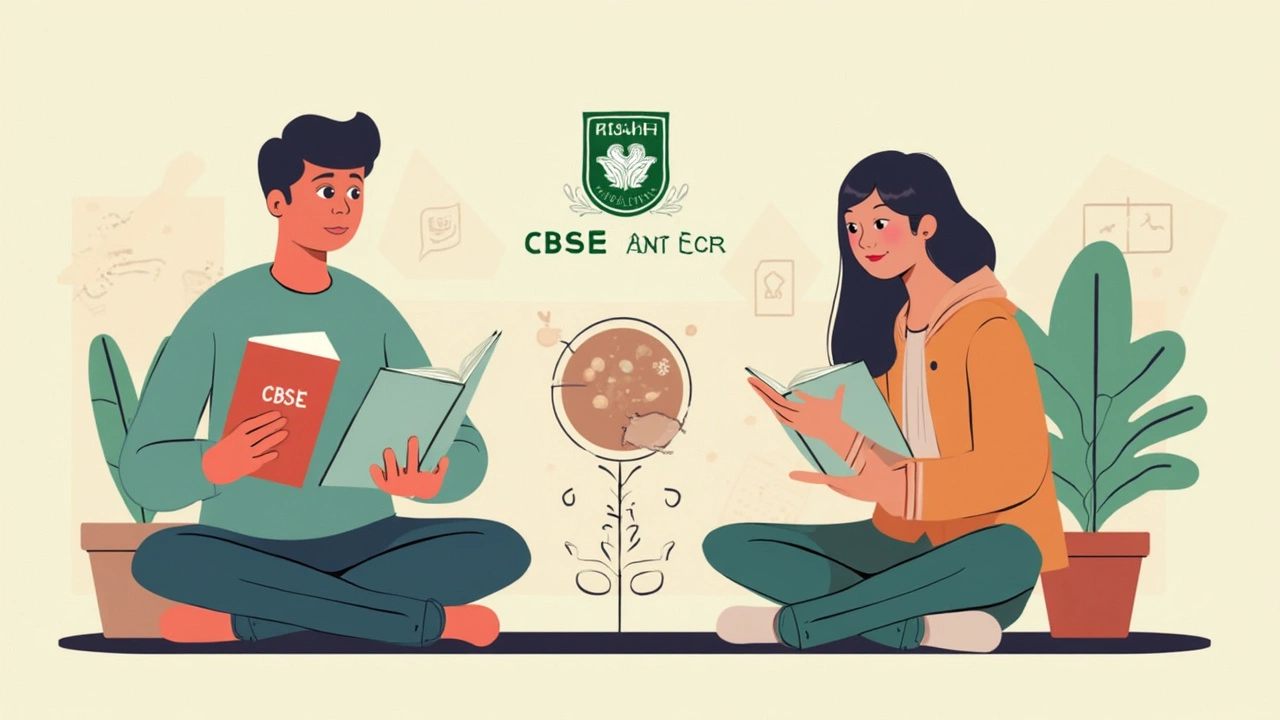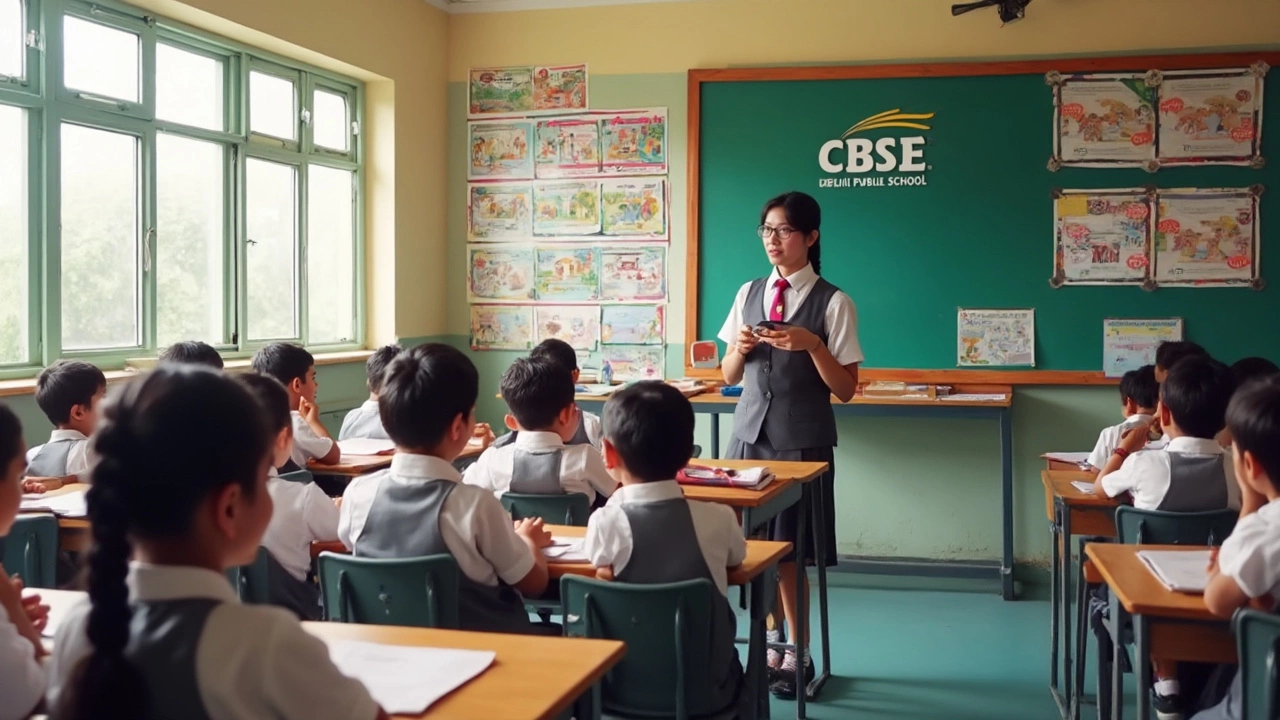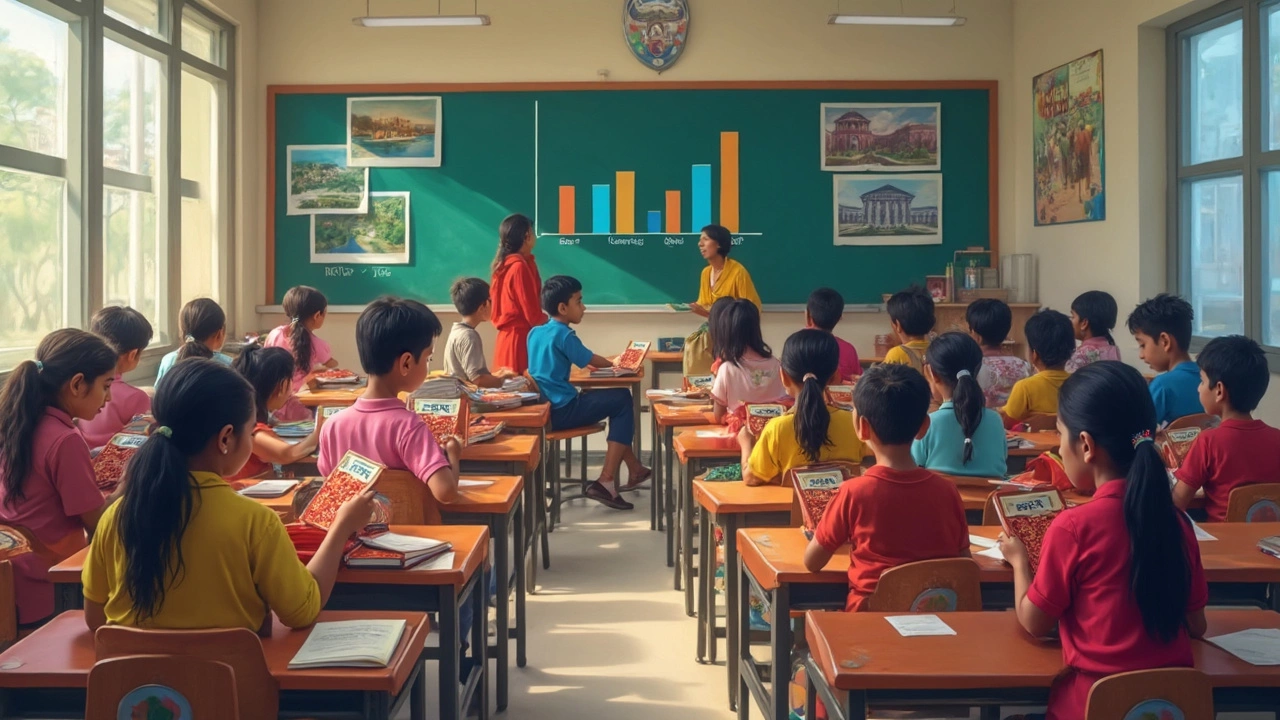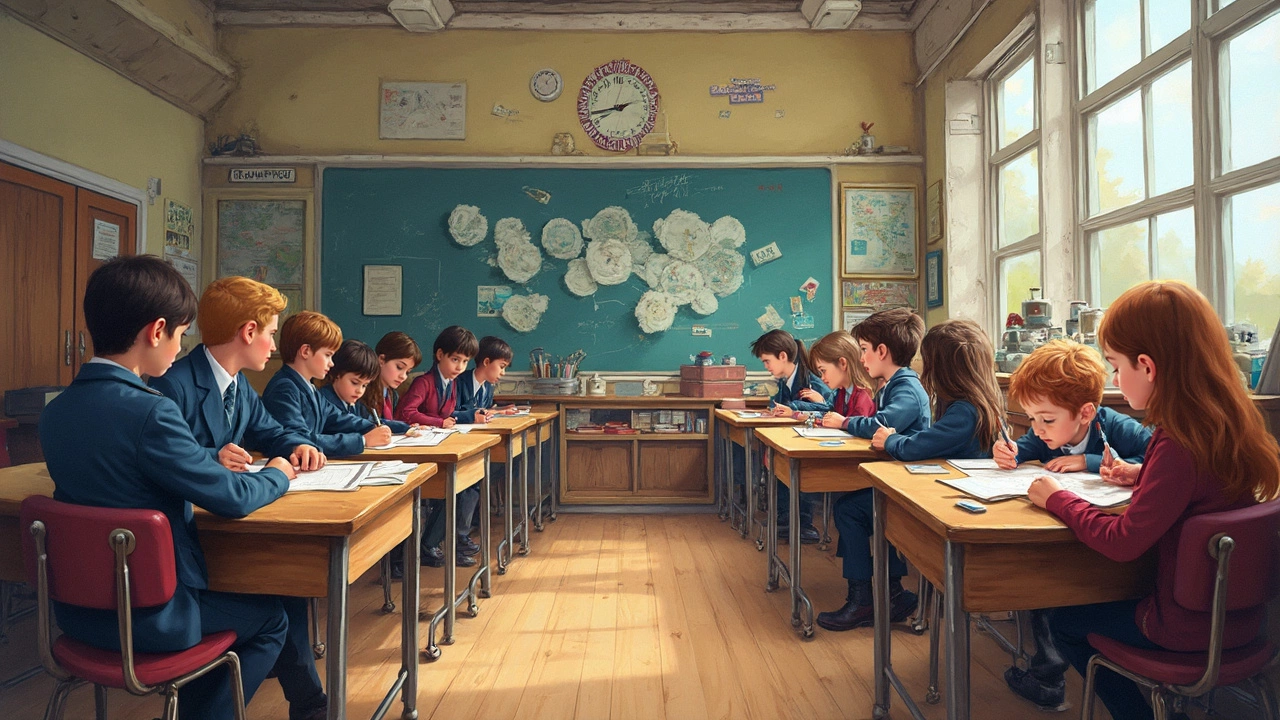If you’re lost in the maze of school boards in India, you’re not alone. Delhi Public School (DPS) pops up everywhere, but there’s always that one question: does DPS teach with the CBSE syllabus or ICSE? It’s not just families in Delhi asking—thousands of parents across India want a clear answer before signing up their kids.
Here’s the straight-up: Almost every DPS in India follows the CBSE board. That means your child studies with the CBSE curriculum, takes CBSE board exams, and gets a CBSE certificate after class 10 or 12. It’s rare for a DPS to follow the ICSE syllabus, and if they did, they’d highlight it loudly on their site and brochures—because it’s the exception, not the rule.
Why does this matter? Each board’s approach shapes what and how your kids learn: from exam formats to the style of textbooks and even the holidays. If you’re trying to pick a school that matches your child’s future goals—or just want fewer last-minute homework surprises—knowing the difference can save a lot of headaches later.
- DPS: CBSE or ICSE—Let’s End the Confusion
- CBSE vs ICSE—What’s the Real Difference?
- Why DPS Follows CBSE (And What That Means for Students)
- Tips for Parents on Choosing the Right Board
DPS: CBSE or ICSE—Let’s End the Confusion
Let’s cut through the rumors and WhatsApp gossip. When people talk about Delhi Public School (DPS), they’re almost always referring to schools that use the CBSE board—Central Board of Secondary Education. Not ICSE. It doesn’t matter if it’s the massive DPS branches in R.K. Puram, Noida, or other cities—CBSE is the rule, not the exception.
Sure, the names of school boards can be confusing, especially when schools advertise “all-round development” or “international curriculum.” But DPS sticks to CBSE in nearly all their Indian branches. ICSE (Indian Certificate of Secondary Education) is run by a totally different council—CISCE. You’ll rarely find a DPS that’s ICSE, and if you do, you’re probably looking at a franchise outside India or a tiny exception.
If you want proof, check the official DPS Society website. Every major DPS lists itself proudly as a CBSE-affiliated school. In fact, CBSE is the largest board in India. Here’s a simple breakdown so you can check for yourself:
| DPS Branch | Board Affiliation | Location |
|---|---|---|
| DPS R.K. Puram | CBSE | Delhi |
| DPS Noida | CBSE | Uttar Pradesh |
| DPS Bangalore | CBSE | Karnataka |
| DPS Navi Mumbai | CBSE | Maharashtra |
Busting another myth: ICSE schools have separate registrations and need a different set of approvals. For parents, this means you don’t need to hunt for board info every time—you can just ask, "Is this a real DPS and is it CBSE?" Most times, the answer is yes to both.
If you still feel unsure, visit the CBSE’s official site and use its school affiliation search. Pop in the DPS branch’s name and you’ll see its status, affiliation ID, and even the session years covered.
CBSE vs ICSE—What’s the Real Difference?
Let’s clear up the mix-up between these two boards. Parents usually want to know: Is my kid going to learn more with CBSE, or is ICSE better? Here’s the breakdown, with the facts right up front:
- CBSE (Central Board of Secondary Education) is the most popular board in India. More than 27,000 schools, including almost every Delhi Public School, are tied to CBSE. It’s the go-to for kids planning for engineering and medical entrance exams because those tests—like JEE and NEET—stick to the CBSE pattern.
- ICSE (Indian Certificate of Secondary Education) is managed by CISCE. It’s well-known for its strong focus on English and its detailed, in-depth approach to topics. ICSE schools are fewer in number—about 2,300 nationwide.
Here’s how they stack up in key areas:
| Aspect | CBSE | ICSE |
|---|---|---|
| Board Authority | National (Govt. of India) | Private (CISCE) |
| Number of Schools (as of 2024) | 27,000+ | 2,300+ |
| Main Language Focus | Balanced: English & Hindi | Strong on English |
| Subject Breadth | Core subjects, simpler choice | Broader, more electives |
| Exam Style | Objective & application-based | Detailed & theory-focused |
| Best For | Competitive exams, national jobs | English fluency, abroad studies |
Most families choose CBSE because it lines up perfectly with competitive exams and kids transferring between cities—think Army families or private sector jobs—won’t have a tough time. ICSE comes up when parents want a blunter focus on language and a broad subject list, especially if they’re thinking long-term about studying abroad.
Don’t stress about which is “harder”—that’s usually just based on what kind of learning your child does best. CBSE goes for straightforward problems and concepts. ICSE likes digging deeper, asking more ‘why’ and ‘how’ in exams. So, the real difference comes down to what fits your child’s way of learning and your family’s plans. Simple as that.

Why DPS Follows CBSE (And What That Means for Students)
Delhi Public School doesn’t just randomly pick a board. DPS schools across the country stick with CBSE because it fits well with their goals—making sure every kid, from any part of India, gets a consistent learning experience. One major reason is reach. CBSE is the most widely recognized board in India, with more than 27,000 schools following this syllabus (as of 2025), including all Kendriya Vidyalayas and most private schools.
The CBSE board is no stranger to scaling. Whether you move to Mumbai or Chennai, DPS makes the transition super smooth for your kid. That’s because the curriculum, exam pattern, and even textbooks are pretty much identical from city to city. This is a big deal for families who get transferred often—and honestly, who has the energy to untangle a totally different syllabus in a new town?
Exams and national tests also play a huge part. Most entrance tests for medical, engineering, defence, and other big-time careers in India follow the CBSE syllabus. Here’s a quick table to lay out why CBSE is the backbone for so many exams:
| Exam Name | Follows CBSE Syllabus? |
|---|---|
| JEE Main/Advanced (Engineering) | Yes |
| NEET (Medical) | Yes |
| NDA (Defence) | Yes |
| CUET (Central Universities) | Yes |
DPS knows parents want their kids prepped for these tests. Being a CBSE school means teachers focus on what actually matters for career goals—not random extras.
What does that look like in real life? Here’s what CBSE means for DPS students:
- Consistent curriculum across India—no big shocks if you switch cities.
- Easier access to national-level competitive exams since the schoolwork lines up with their syllabus.
- More focus on science, maths, and languages with real-world application.
- Test formats (multiple-choice, practicals, etc.) are familiar, thanks to nationwide CBSE patterns.
One more small, but handy, thing—CBSE schools usually get exam results out quickly and have a straightforward grading system. So, your family isn’t stuck waiting or confused by complicated marking rules.
All in all, DPS goes with CBSE not just for tradition, but because it makes school life (and post-school decisions) a lot simpler for students and parents alike.
Tips for Parents on Choosing the Right Board
Picking a school board isn’t just another box to check off—this decision can shape your kid’s whole school journey. Here’s what you need to know before you put your money and trust into any system.
First off, understand how Delhi Public School works. DPS almost always chooses CBSE for its curriculum. That means if you want your child to follow ICSE, DPS probably isn’t the right fit, unless there’s a rare branch with ICSE (and these are clearly labeled).
- CBSE is everywhere: Over 27,000 schools in India follow CBSE, making it easier to switch schools if you transfer cities for work.
- Focus on competitive exams: CBSE lines up well with major entrance exams like NEET and JEE. The syllabus and exam style are made for students aiming at engineering, medicine, or other all-India gateways.
- ICSE is more language-focused: This board gets deeper into English literature and grammar. If you want global exposure or plan to send your child abroad, ICSE sometimes has an edge.
- Subject choices: CBSE keeps it pretty standard. ICSE lets kids pick a wider range of arts and sciences early on.
To make things clearer, here’s a quick table showing a few important differences. This isn’t the full story, but it’ll help you cut to the chase:
| Criteria | CBSE | ICSE |
|---|---|---|
| Popularity in India | 27,000+ schools | ~2,700 schools |
| Language Impact | Emphasizes both Hindi and English | Heavy focus on English |
| Ideal for | Students aiming for all-India entrance exams | Students wanting variety & global options |
| Grading Pattern | Percentile + grades | Marks-based, detailed |
Want a tip? If your job moves you around the country a lot, stick with CBSE. If your child is more about creative writing, arts, and perhaps thinking about studying abroad, look hard at ICSE (but remember: DPS rarely offers it!).
No one gets this choice right “for everyone”—think about your own situation, your kid’s interests, and even future plans like moving cities or countries. Your call really does affect the years ahead, so it pays to check the board’s website, talk to teachers, and even chat with other parents who’ve already been down this road.


